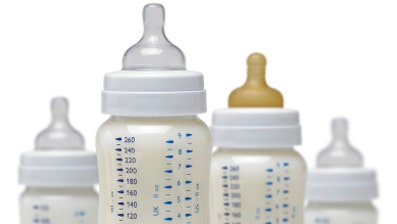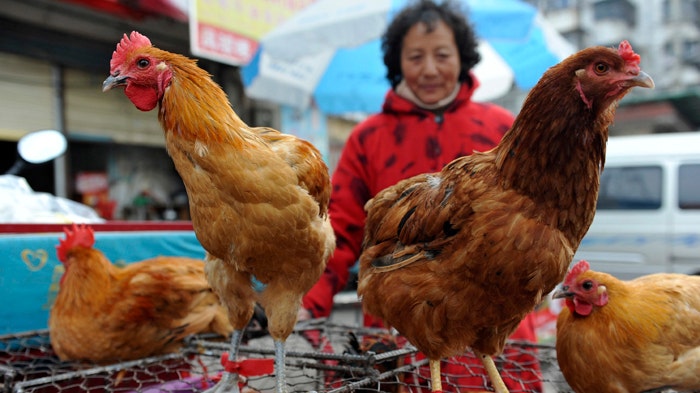In the fall of 2008, Marty Kihn had reached rock bottom: He was drunk most of the time, and his wife had left him, but he wasn’t completely alone. He had his Bernese mountain dog named Hola, although she wasn’t the best of company.
This 85-pound canine had no problem tackling strangers, chewing up new furniture and running after drug dealers in their Washington Heights neighborhood in New York City.
Hola’s behavior was so atrocious, it was one of the reasons Kihn’s wife left him. Well, that and the fact that he was an alcoholic.
“When my wife Gloria moved out, I finally realized I could actually lose everything that mattered to me – that it was an actual possibility,” said Kihn, 44, who detailed his story in the book Bad Dog (A Love Story). “That’s what it took to get me to open my mind and get help.”
One of the hardest things about becoming sober was figuring out what to do with his time. Kihn realized that a good part of his day was consumed by his addiction: His hangover, looking forward to his next drink, hiding the fact that he was drinking, feeling worried or ashamed about it and apologizing for drinking. Add in a full work day, plus sleeping and eating, and you’ve got 24 hours covered.
“So when I got sober, there was just a whole lot of empty time that opened up,” Kihn said. “I didn’t have the tools or good habits to know what to do. I was smart enough to know that sitting by myself and thinking was the worst possible option.”
So Kihn came up with a plan: He would become a full-time dog trainer and have Hola master the American Kennel Club’s rigorous Canine Good Citizen test, which was created to encourage dogs to become “better members of society.”
“In order to get certified, a dog must pass 10 tests of obedience, good manners and grooming,” Kihn wrote. “The AKC considers these 10 tests to be ‘only the beginning,’ but anyone who has ever loved a dog may have another word for them. Impossible.”
Some of the items on the test included:
• Accepting a friendly stranger
• Sitting politely for a stranger
• Appearance and grooming
• Supervised separation
To say that these tasks would be challenging is an understatement. Before the training, Hola barely knew how to sit and stay.
But Kihn figured if he could tame Hola, he just might be able to win back his wife’s affections, too.
The CGC test’s 10 steps aligned perfectly with Kihn’s 12 steps at Alcoholics Anonymous.
“When I first saw the CGC demonstrated, and later when I watched out dog-handler teams going through it, I was sure we couldn’t do it,” Kihn said. “Hola was too jumpy and distracted, and I was the world’s worst dog trainer. Plus, I’m naturally pessimistic.”
According to Kihn, both the CGC and his own 12-step program required the participant to admit he or she had a problem: In Kihn’s case, he had to admit he was an alcoholic; Hola had to ‘admit’ she was unmanageable.
“Both are structured programs of recovery – from alcohol and from bad behavior,” Kihn said. “And both work better if you do them alongside others. The prize for them is not money or fame or anything material – both programs reward the human and dog with the greatest gift of all: A better life.”
And a better life is exactly what Kihn got. After a lot of hard work and patience, Hola passed the CGC test with flying colors – and ironically on the same day – he reunited with his wife. They have since moved to Minneapolis, where Kihn continues his recovery by attending daily meetings.
“At my little brother’s wedding recently, my sister gave a toast where she said, ‘Hola taught my brother Marty how to love.’ It’s an interesting idea. I think a lot of addicts and neurotic people like myself are extremely self-centered. It’s a disease of selfishness. As we say in the program, ‘I’m not much, but I’m all I think about.’ To get sober, we have to focus on something other than ourselves. I chose Hola, and she was happy to help.”
Studies say that owning a dog is good for your health — dog owners are more likely to exercise, have lower blood pressure and less stress; it can even reduce depression. There have been cases where dogs have sniffed out tumors, or saved their owners from diabetic shock. Hola saved Kihn from his addiction.
Kihn said while dogs are “great medicine for recovering addicts” – he wouldn’t suggest that all recovering alcoholics go out and get a dog – only those that can honestly commit to taking care of an animal.
“I can’t stress that enough. A dog in particular demands a lot of time, work and attention. Early sobriety is probably not the time to get an animal, but once you are in a solid program, an animal can be very therapeutic,” he said. “Not just having it around, but training it, learning to speak its language, getting involved in the dog community. Dogs are in the moment.”





Leave a Reply